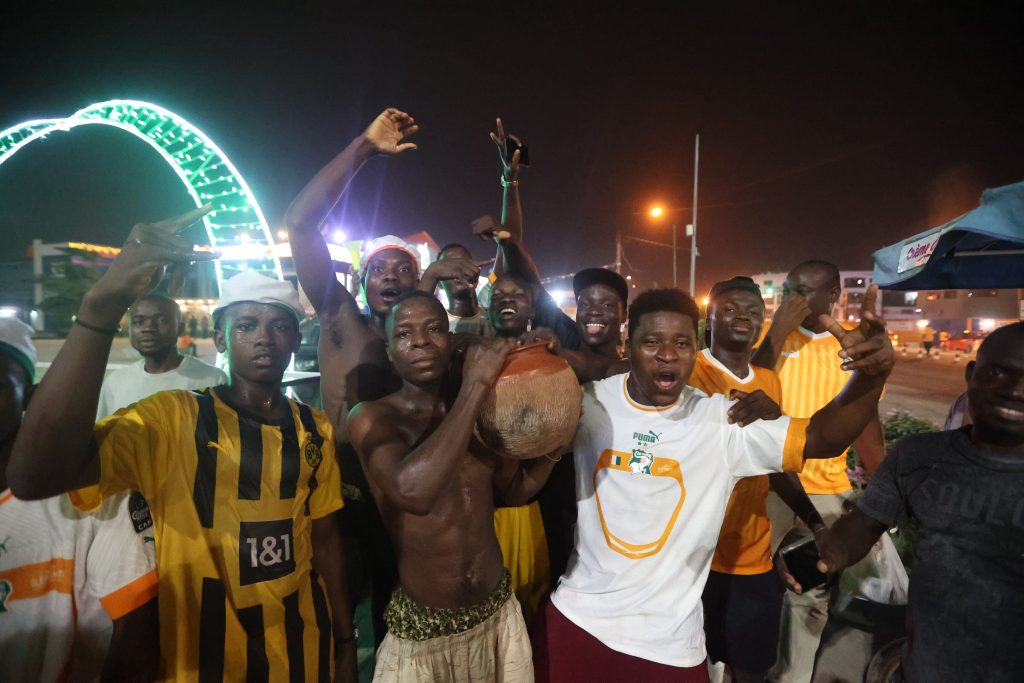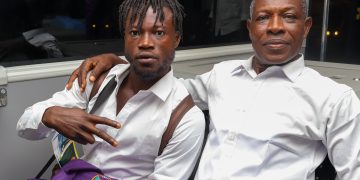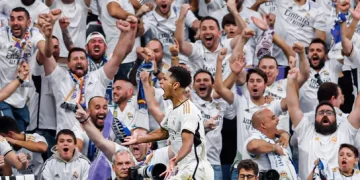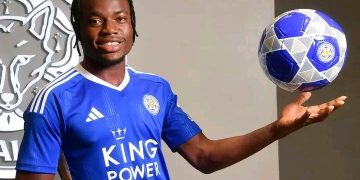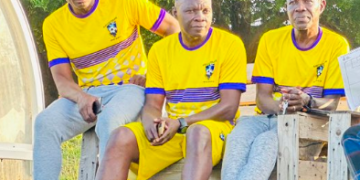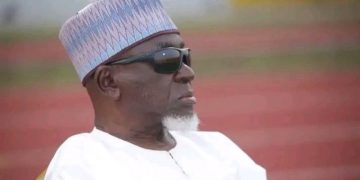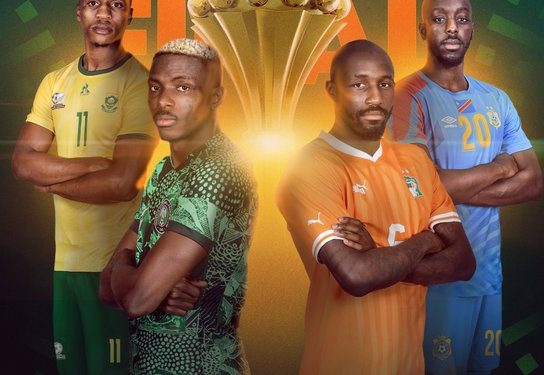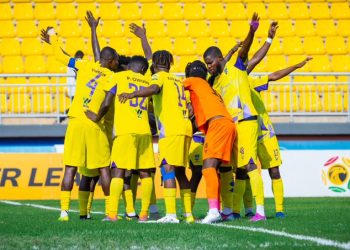At the 34th edition of the African Cup of Nations (AFCON) in Côte d'Ivoire, four nations are vying for the ultimate trophy.
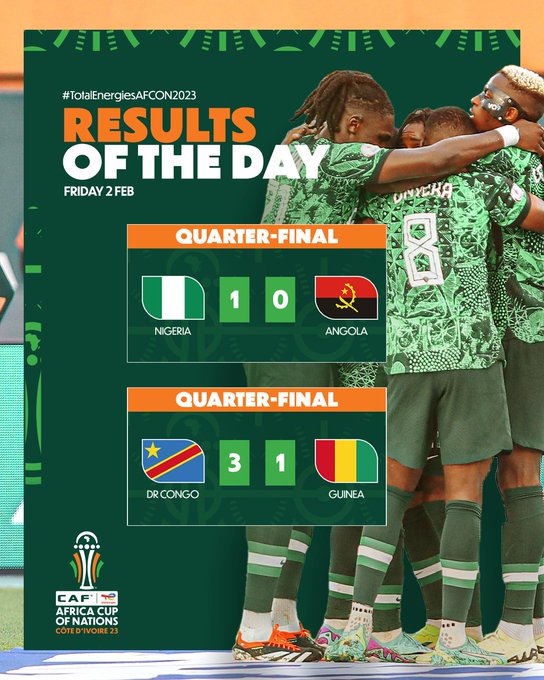
The four countries at the semi-final stage of the competition are host nation Côte d’Ivoire, a two-time champion in 1972 and 1974, Dr. Congo; South Africa, which won it as host in 1998; and the Super Eagles of Nigeria, which won their third trophy in the last five editions in 2013.
The seductive editorial team at www.atspo.com has reviewed the goal-scoring form of the four semi-finalists before they engaged themselves on Wednesday, February 14, 2024, to set the way for the two finalists.
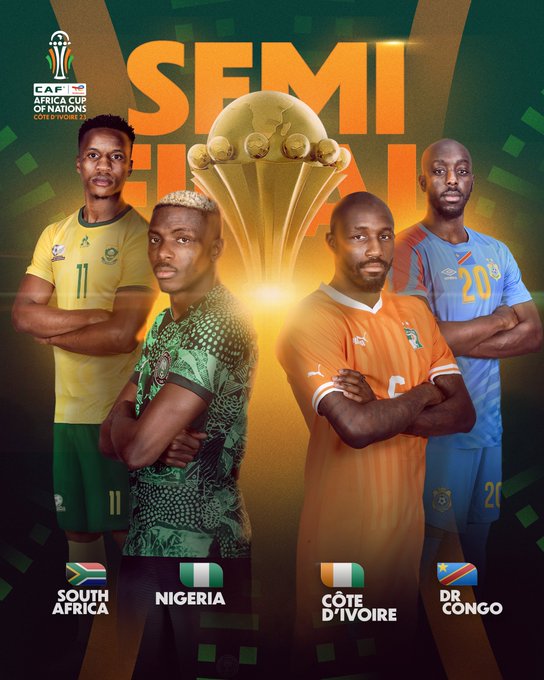
Lookman Ademola of Atlanta in the Italian League scored his team’s sixth goal against the Palancas Negras of Angola, making the Super Eagles of Nigeria the first nation to qualify for the semifinals.
The Super Eagles were placed in Group A of the competition, alongside Equatorial Guinea, Ivory Coast, and Guinea-Bissau, and finished second to Equatorial Guinea with 7 points.
Victor Osimhen scored the Super Eagles’ first goal, an equaliser against Equatorial Guinea, at the Alassane Ouattara Stadium. The captain, William Troost-Ekong, scored a penalty against Guinea-Bissau, and Opa Sangante of Guinea-Bissau scored an own goal in the final group stage game.
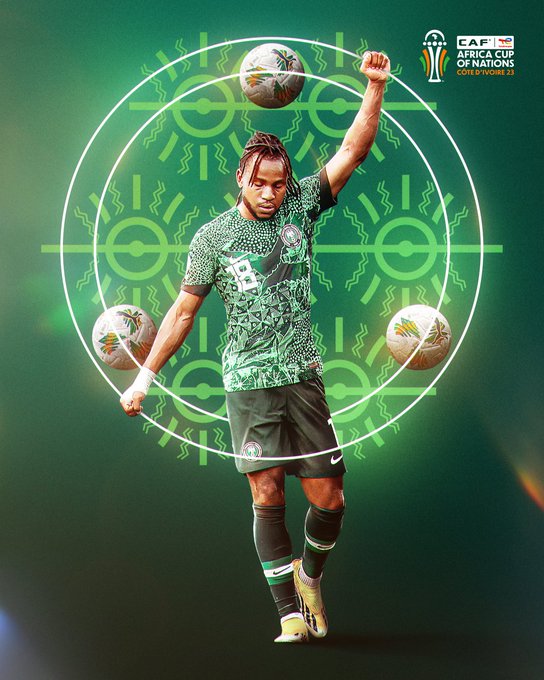
The English-Nigeria-born Ademola Lookman has been the knight in shining armour for the Super Eagles; he scored a brace against Cameroon and a goal against Angola, which was the sixth goal by the three-time champions of the competition.
The Leopards of Dr. Congo qualified to join the Super Eagles after a four-goal thriller against Guinea’s Syli Nationals. They were placed in Group F alongside Morocco, Zambia, and Tanzania and finished second with three draws and three points.
Brentford’s Yoane Wissa scored the Leopards of Dr. Congo’s first goal of the competition at the Laurent Pokou Stadium in San-Pédro against Zambia. Silas Katompa scored an equaliser against Morocco, which was Sébastien Desabre’s team’s only goal in the group stage.
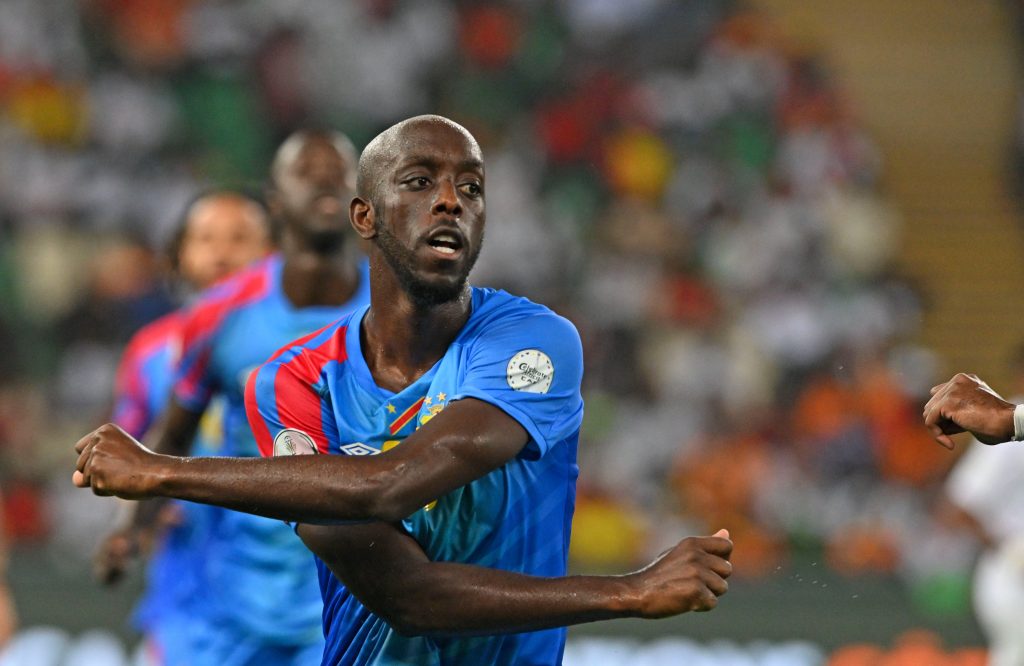
Dr. Congo, a four-medalist in the competition, has been resplendent in the Round of 16 and Quarter-finals; Meschak Elia scored in a 1:1 draw against Egypt’s Pharaohs to advance through a penalty shootout in the Round of 16.
In the quarter-final against Guinea, the Leopards of Dr. Congo retaliated within 6 minutes through Mangulu Mbemba, Yoane Wissa scored his second goal, and Arthur Masuaku of Beşiktaş scored a dramatic free-kick, bringing the total to six goals.
South Africa’s Bafana Bafana was the final team to qualify, becoming the third team in the semi-finals to score six goals. They were placed in Group E alongside Mali, Tunisia, and Namibia.
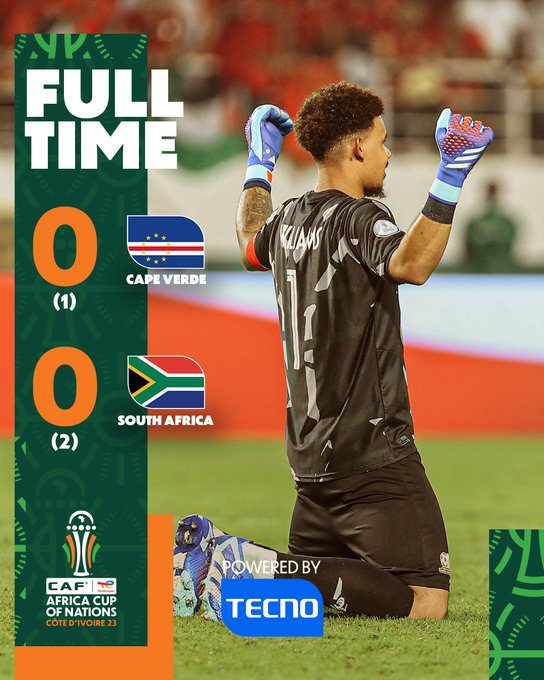
The South Africans, after failing to score and win in the opening game against the Eagles of Mali, responded positively against the Brave Warriors of Namibia. Percy Tau, a brace by Themba Zwane, and Thapelo Maseko secured four goals in a win for Hugo Broos’s team.
The country with lots of local-based players in the competition scored two goals against the continent’s current national football team of the year, Morocco, by 2:0. Evidence Makgopa of Orlando Pirates and Elias Mokwana of Mamelodi Sundowns scored in the round of 16.
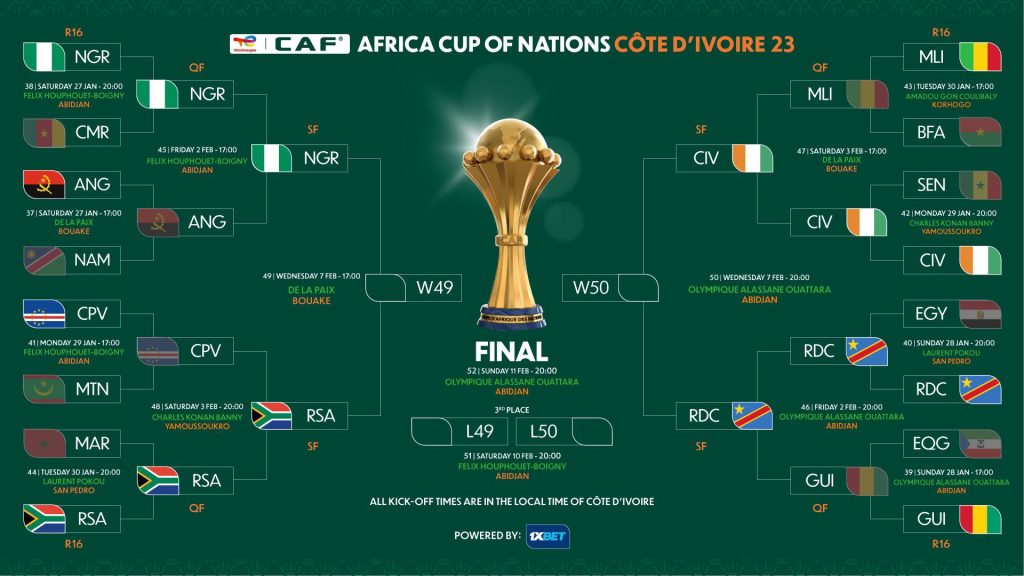
Côte d’Ivoire’s Elephants were the third country to advance to the competition’s final four; they were automatically seeded in Group A, alongside Nigeria, Equatorial Guinea, and Guinea-Bissau.
The winners of the competition in Senegal ‘1992 and Equatorial Guinea ‘2015 were amateurish in goal scoring; Seko Fofana and Jean-Philippe Krasso provided two goals in the opening game of the competition against Guinea-Bissau.
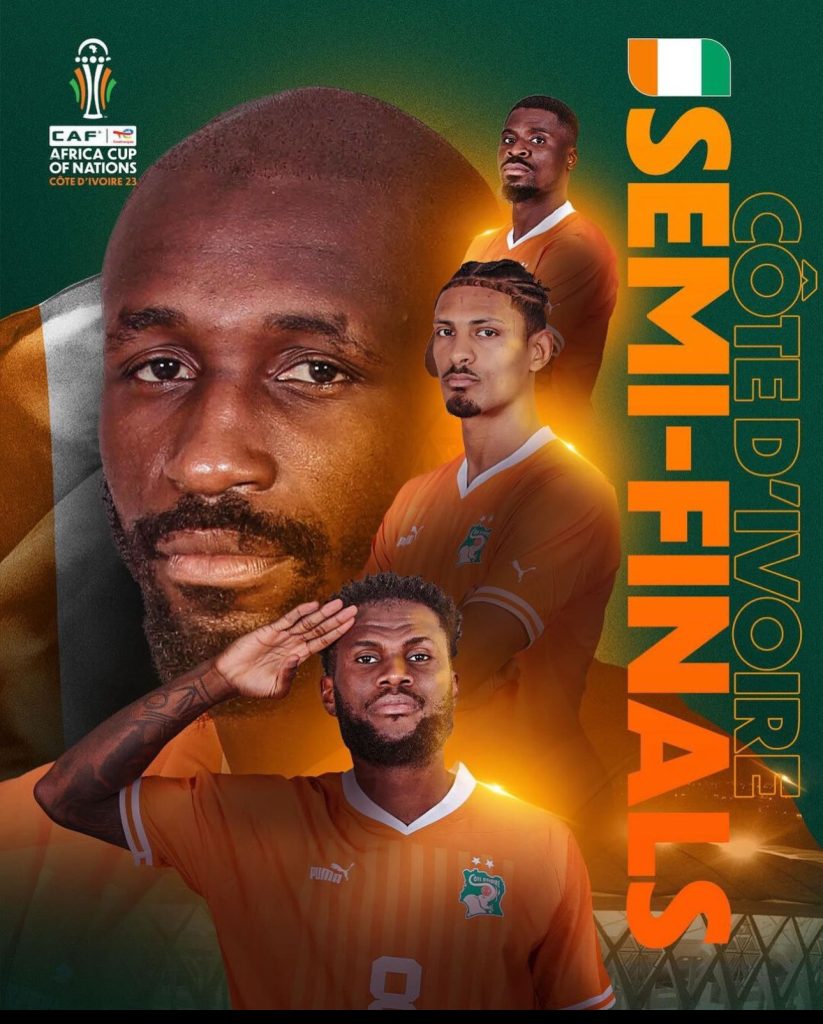
They added three goals to have a total of five goals to be the team with the fewest goals scored among the other three teams; Franck Kessie equalised against the defending champions, Senegal, and Simon Adinkra and Oumar Diakité made a spectacular comeback against Mali.
